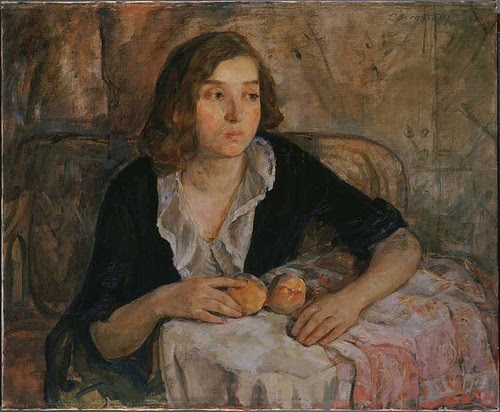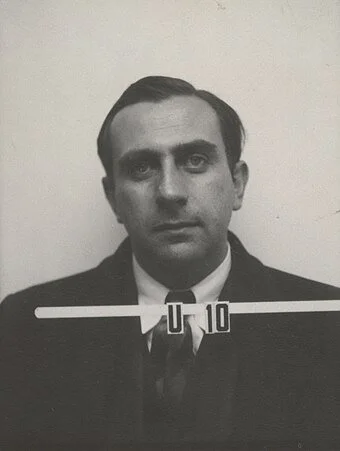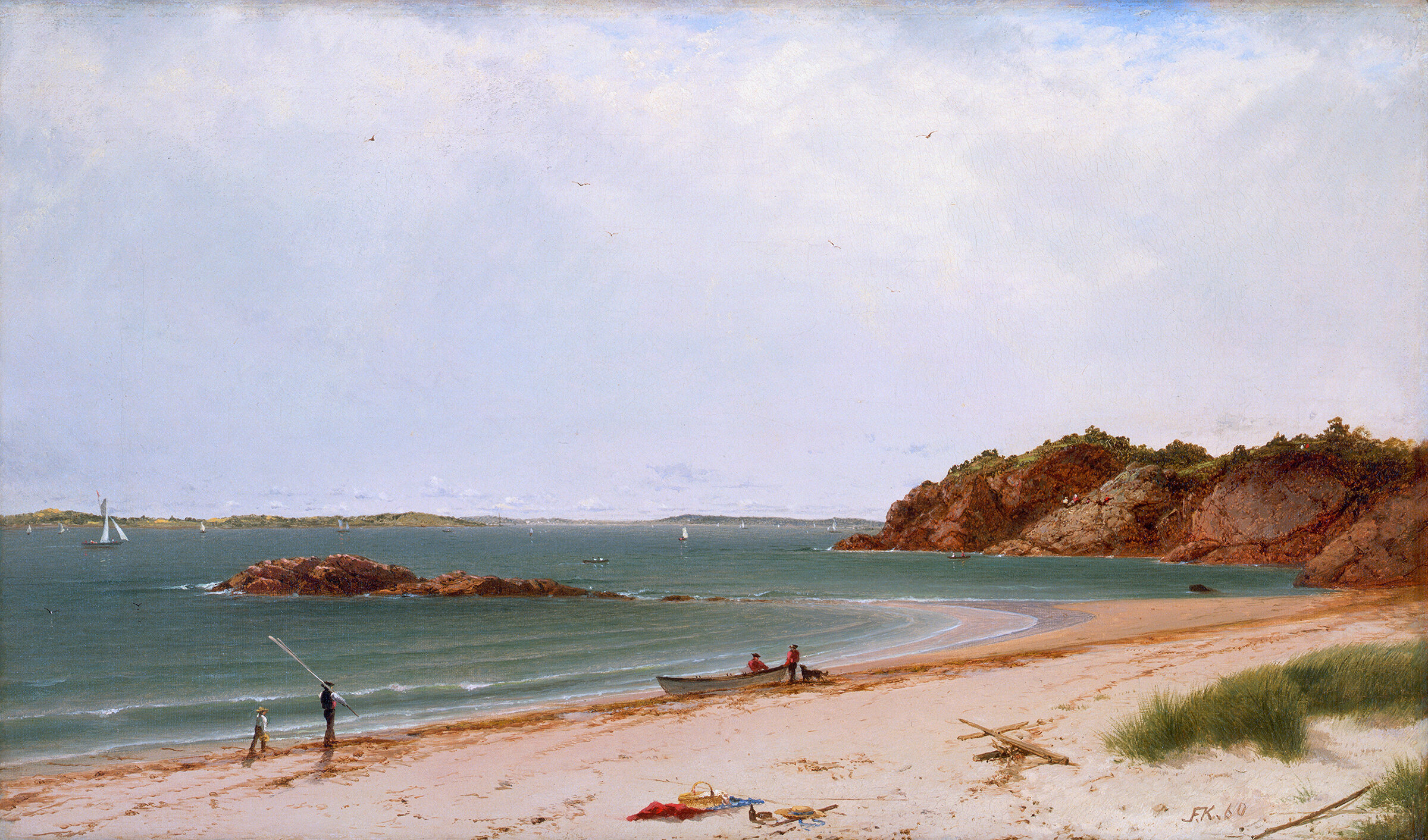
Llewellyn King: Memories of people I knew from the Manhattan Project; beautiful "Barbie'
Important sites in the Manhattan Project. Alamogordo is where the first atomic bomb was detonated, on July 16, 1945. The map would have been better if it had included the site of uranium 238 refining for the project by Metal Hydrides Inc., in Beverly, Mass.
Edward Teller’s (1908-2003) badge photo at the Manhattan Project’s Los Alamos, N.H., facility. Called “The Father of the Hydrogen Bomb,’’ he was seen as an inspiration for the eponymous scientist in Stanley Kubrick’s classic 1964 black comedy Dr. Strangelove.
WEST WARWICK, R.I.
I have been to the movies. I haven’t done that since before the COVID shutdown.
I went to see two huge movies that have each grossed $1 billion so far, and I enjoyed them enormously. They are, of course, Barbie and Oppenheimer.
I went to see Barbie because I thought I should know what people were discussing. I went to see Oppenheimer because, in a sense, I have skin in that game. I knew a few people who worked on the Manhattan Project, and two of them were characterized in the movie: Hans Bethe and Edward Teller, known as the father of the hydrogen bomb.
About Barbie: It is a fantasy romp filled with popular, real-life messages. I had to see how director Greta Gerwig would make an adult movie about a doll, albeit a storied one — with brilliant imagination is how.
Oppenheimer, by contrast, is a major cinematic work, a remarkable recapturing of history and character development on the screen. Christopher Nolan is a director at the top of his game. He deserves a comparison with Orson Welles and David Lean.
Across the board, it is a triumph, compelling and true to the facts and the personalities. The evocative recreation of Los Alamos as it must have been, of the tower from which the first nuclear device was detonated, rings true. I have crawled all over the nuclear-test site and spent many hours at Los Alamos, where I used to give an annual lecture on energy or the relationship of humans to science.
In November 1975, Bethe and another veteran of the Manhattan Project, Ralph Lapp, and I put together a panel of 24 Nobel laureates (including Bethe) to defend civilian nuclear power. We got them all together on a stage at the National Press Club, in Washington. I had hoped that it would be a seminal event, ending some of the nonsense being spread about nuclear radiation.
Ralph Nader took up arms against us and assembled 36 Nobel laureates who were cool to nuclear. Ours were physicists, engineers and mathematicians who had a vast understanding of nuclear and endorsed it enthusiastically.
We didn’t win. Bethe, as I recall, was philosophical about being trounced.
I first met Teller in Geneva. I was to introduce him at a conference, and we had breakfast together. He seemed distracted and confused. But he was in top form when he spoke.
Later, I got to know him better. He gave a series of speeches for conferences I had organized on the Strategic Defense Initiative — colloquially known as Star Wars. He often sat slumped in his chair, clutching his enormous walking stick. But he stood erect on the podium, arguing vigorously the case for Ronald Reagan’s program.
The Oppenheimer movie reminded me of two institutions I covered intensely as a reporter: the Atomic Energy Commission (AEC) and its congressional overseer, the Joint Committee on Atomic Energy.
The committee was supposed to check the AEC. The AEC was a tool of the powerful and wildly pro-nuclear committee — the only joint committee empowered to introduce legislation in both houses of Congress. The reality of that partnership was that the committee proposed and the AEC disposed.
The movie is extraordinary in capturing the workings of Congress and how a nod or a smile can put great events in motion.
This understanding of the nuances and mores of Washington, and particularly the arcane theatricality of the congressional hearings, is accurate in ways seldom captured on film. This is more surprising given that the director is an Englishman who lives a very private life in Los Angeles.
I leave it to sociologists to ponder how two movies as different as Barbie and Oppenheimer could open simultaneously, becoming huge hits. If you see these movies, especially Oppenheimer, see them in the theater. They deserve that big-screen and wraparound-sound environment.
On Twitter: @llewellynking2
Llewellyn King is executive producer and host of White House Chronicle, on PBS.
White House Chronicle
Tree fundamentals
“Cathedral of the Forest (acrylic on wood), by Rose Olson, in her show “Rose Olson: New Works,’’ through Oct. 31 at Kingston Gallery, Boston. She has studios in Boston’s South End and in Beverly, on Massachusetts’s North Shore.
Braddock Park, in the South End
— Photo by Payton Chung
Veterans Memorial Bridge, looking toward Beverly from Salem
Gray flowers for a gray time
“Every Flower Touched” (handmade charcoal, commercial charcoal and wood ash on Fabriano), by Beatrice Modisett, at Montserrat College of Art, Beverly, Mass.
Montserrat says she uses “physical processes like working with charcoal to explore geology and erosion, along with the systems that humans create to navigate, control and contain the landscape around them.’’
Beverly, on the North Shore, is an unusual mix of Boston suburb, some of it rich and some of it middle class, summer resort and former major manufacturing center.
“View of the Beach at Beverly, Massachusetts, 1860,’’ John Frederick Kensett
1879 map of the sites of Beverly.
Vintage postcard of the long-gone United Shoe Machinery Corp’s flagship factory in Beverly, since repurposed.
Safe from COVID until NASA arrives
Triptych, from left to right: “Canals of Mars, Martian Sky, Martian Water,’’ (all acrylic on wood), by Boston and Beverly painter Rose Olson, in her show “Rain and Sunshine,’’ at Kingston Gallery, Boston, through July 26.
Her artist’s statement:
“Color has sharpening aspect affecting our senses and intellect simultaneously. These paintings reflect my passion for color and its interaction with the beauty of natural elements.
“Wood-grain patterns are exciting and varied since each is specific to what once was a living tree. Their patterns are as unique as our fingerprints, as important as the colors I use. Layers of color are applied one at a time enhancing each wood grain pattern as the painting builds in luminosity. Conscious of the interplay, colors often change as the viewer moves or the light shifts. Hard edges and added color bands enhance the color and spatial effects revealing another way of seeing the world.’’
See:
http://www.kingstongallery.com/
and:
roseolson.com
John O. Harney: News and random thoughts from the region
“If Wishes Were Horses (For Dad)”, by Timothy Harney, a professor at the Montserrat College of Art, in Beverly, Mass. He’s the brother of John O. Harney.
From The New England Journal of Higher Education, a service of The New England Board of Higher Education (nebhe.org)
FICE-y conditions. MIT recently alerted its staff that federal immigration officials would be checking the status of foreign postdoctoral students, researchers and visiting scholars in the sciences, and urged them to cooperate. … Meanwhile, an Iranian student, returning to study at Northeastern University, was detained at Boston’s Logan International Airport then deported, despite having a valid student visa and court order permitting him to stay in the U.S. The stories reminded me of Politico’s report on “5 ways universities can support students in a post-DACA world” by Jose Magaña-Salgado, of the Presidents’ Alliance on Higher Education and Immigration. And of own NEJHE piece by Harvard attorney Jason Corral, whose job is advising undocumented students in the age of the Trump administration.
Caste away. Brandeis University announced it will include “castes” in its non-discrimination policy. Discrimination based on this system of inherited social class will now be expressly prohibited along with more familiar measures such as race, color, religion, gender identity and expression, national or ethnic origin, sex, sexual orientation, pregnancy, age, genetic information, disability, military or veteran status.
Institution news. Massachusetts approved new regulations on how to screen colleges and universities for financial risks and potential closures. … The University of Maine System Board of Trustees adopted a recommendation from Chancellor Dannel Malloy to transition the separate institutional accreditations of Maine’s public universities into a single “unified institutional accreditation” for the 30,000-student University of Maine System through the New England Commission on Higher Education (NECHE). One institution the UMaine System is likely to collaborate with according to Malloy’s office: Northeastern University’s planned Roux Institute for advanced graduate study and research to open in Portland, Maine. … In Connecticut, meanwhile, Goodwin College became Goodwin University. Such rebranding has been something of a trend in recent years. … In other institution news, monks at Saint Anselm College challenged the New Hampshire Catholic college’s board of trustees over a move the monks say could lead to increased secularization. The college’s charter dictated that the monks have the power to amend laws governing the school. Saint Anselm College President Joseph Favazza said in a letter that the board was not trying to change the mission of the college, but rather aiming to meet the standards set by NECHE, the accrediting body.
Cold War chills. Primary Research Group Inc. has published its 2020 edition of Export Controls Compliance Practices Benchmarks for Higher Education with this grim reminder: “Increasingly, U.S. universities and their corporate and government research partners are under pressure to demonstrate compliance with U.S. export control and other technology transfer restriction and control policies. The deterioration of U.S.-relations with China and Russia threatens the return of export control philosophies common during the Cold War. Major universities in the U.K., Australia and Canada, among other countries, are experiencing similar changes.”
Media is not the enemy, but … The free Metro Boston newspaper ended operation after 19 years, following the sale of the New York and Philadelphia Metro papers. One explanation offered by a columnist at The Boston Globe, which is a part-owner of the Boston Metro: more commuters using their phones to catch up on news.
Latest from LearnLaunch. Watch NEJHE for reports from the 2020 Learn Launch Across Boundaries Conference, including an exclusive Q&A with the new LearnLaunch president, former Massachusetts Gov. Jane Swift.
John O. Harney is executive editor of The New England Journal of Higher Education.
'Mastery of the human condition'
 Girlhood'', by the late THERESA BERNSTEIN, in the show "Theresa Bernstein: A Century in Art'', at the Heftler Gallery, Beverly, Mass., through July 11.
Girlhood'', by the late THERESA BERNSTEIN, in the show "Theresa Bernstein: A Century in Art'', at the Heftler Gallery, Beverly, Mass., through July 11.
The show is meant to acquaint viewers with "her mastery of the human condition.''
As often is the case in these days of identity politics, Ms. Bernstein's relative obscurity is blamed on her being a woman and so not being given adequate respect and publicity. I don't know about that, but she certainly was a fine painter.
]











